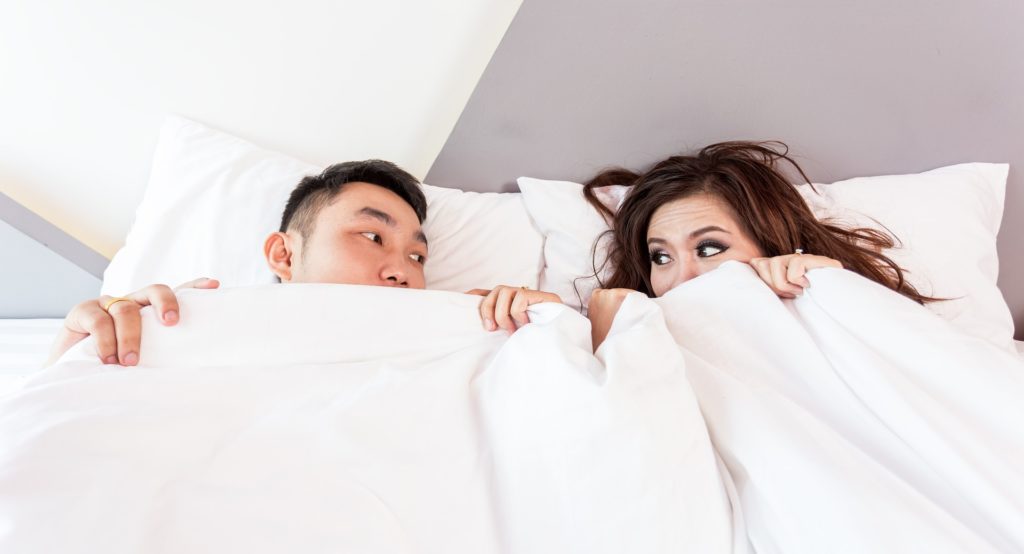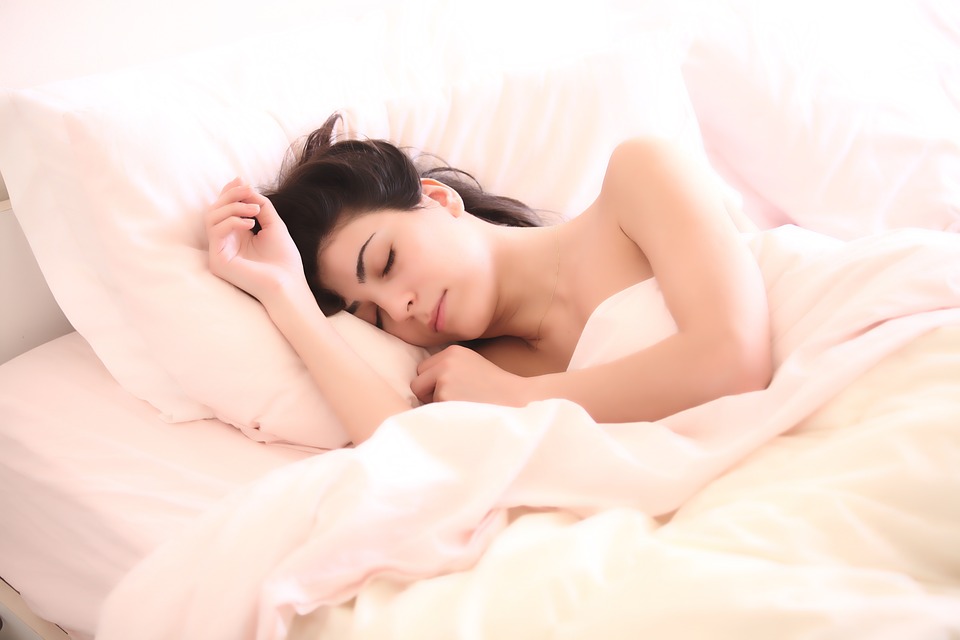
Sleep deprivation is far more common than you may think, with a consistent lack of sleep quickly becoming a threat to our mental and physical health if not addressed. Sleep experts at Bed Kingdom reveal the signs that you may be suffering from sleep deprivation and how you can combat it.
What are the signs that I’m sleep deprived?
1. Craving a takeaway
If you’re suddenly urged to indulge in a takeaway or junk food, it can be a symptom of sleep deprivation. Lack of sleep alters appetite-regulating hormones as well as metabolism and brain function. We are far more likely to turn to junk food due to the cravings for high calories, high sugar, high fat and salty snacks as a result, as a way to increase our energy levels.
2. Poor memory
Sleep deprivation affects the brain’s ability to learn and recall information. During REM sleep, the brain is active, processing information and storing memories from the previous day.
Less sleep disrupts this process because the body spends less time in this REM cycle. You may have trouble recalling what was said in a business meeting or your assignments the following day. Sleep deprivation also makes it harder for the brain to absorb new information, as it works hard to focus and take in information.
Not only is your ability to remember affected, but your motor skills suffer too. The brain’s ability to store memory also includes motor skills and physical reflexes. This is another reason why many car accidents occur due to sleep deprivation. Sleep-deprived drivers have a slower reaction time. Poor motor skills can also be problematic if you play sports with less sleep—you may struggle to execute a specific move or manoeuvre, preventing you from performing at your best.
2. Weight gain
Less sleep triggers changes in hormone levels that regulate your hunger. Leptin lets the body know when it’s full, while ghrelin signals hunger. Little sleep produces less leptin and more ghrelin—you’ll feel hungrier, but your body will be slower to react when you’re full. You end up eating more than you need to.
Sleep deprivation increases stress. Less sleep triggers an increase in cortisol levels. Cortisol is a stress hormone responsible for holding onto energy (sugars and fat) for later use. More stress means your body retains fatter.
Your insulin levels are also affected. With a higher production of cortisol, your body is less sensitive to insulin. Insulin is a hormone that changes food into energy. Your body has a more challenging time processing fats from the bloodstream when it becomes less sensitive to insulin. These fats end up stored in the body, leading to weight gain.
Less sleep also affects your diet. As previously mentioned, sleep may influence your decisions. Studies show that less sleep leads to consuming more junk food. You’re more likely to crave high-fat, high-sugar foods, like french fries and ice cream. You’re also more likely to give in to those cravings.
To make matters worse, eating these foods increases the chance that you’ll indulge in the same foods again on the same day.
3. Poor decision making
Studies show that sleep loss is tied to making risky decisions. You become more impulsive and are less likely to consider loss, only focusing on the reward. How does this happen?
In 2001, the SLEEP journal published a study on how sleep deprivation elevates the expectation of gains. Sleep-deprived participants were more likely to make risk-taking decisions if the payoff was high. The anticipation of reward stems from an area of the brain called the nucleus accumbens. While the number of high-risk decisions didn’t increase, the expectation for a higher reward did.
This type of phenomenon is common in gambling. It can also be a problem in everyday life. For example, if you’re an entrepreneur or own a company, you may make risky decisions hoping for a higher reward. Further, less sleep also means your brain is less aware of loss—you could make a high-risk decision, only focused on the reward and not fully considering the consequences if you lose.
4. Overheating
Sleep is vital for our bodies to regulate our internal temperature. Therefore, if you are feeling hot, your body overheats due to a consistent lack of good quality sleep. In fact, as we get more and more tired, our brain begins to overheat with yawning being a method of compensating for this thermoregulatory failure.
Next time you feel hot and bothered, it could be a sign that you need more sleep, particularly during summer.
How much sleep do I need to avoid being sleep deprived?
This varies on your age:
- Newborns (0 to 3 months): Between 14 and 17 hours of sleep
- Infants (4 to 11 months): Between 12 and 15 hours of sleep
- Toddlers (1 to 2 years): 11 to 14 hours of sleep
- Pre-school (3 to 5 years): 10 to 13 hours of sleep
- Children (6 to 13 years): 9 to 11 hours of sleep
- Teenagers (14 to 17 years): 8 to 10 hours of sleep
- Adults (18 to 64 years): 7 to 9 hours of sleep
- Older adults (65+ years): 7 to 8 hours of sleep
Does napping make up for lost sleep?
Napping for brief periods may boost your energy levels and improve your focus. Just make sure you’re smart about how you nap. Don’t sleep longer than 30 minutes—you want to avoid slipping into the REM cycle, which can cause sleep inertia. Also, avoid napping after 3 p.m. This could make it harder for you to fall asleep at night.
How can I achieve better sleep?
Practicing good sleep hygiene is the key to avoiding the effects of poor sleep. There a number of small things you can do in your routine that can better your sleep hygiene.
- Establish a sleep schedule
Setting a bedtime may seem childish, but in reality, it works. A set sleep and wake time makes it easier to fall asleep at night and wake in the morning. Your body will adjust to the rhythm, so when it’s time for bed, you may automatically start to feel sleepy. It’s just as important to maintain this schedule on the weekends too. Bodies respond positively to these consistent rhythms. Sleeping in for a few hours may be tempting, but this can throw off your body. Plus, if you get the right amount of sleep, you likely do not need that extra time.
- Avoid heavy meals
There may be some truth to “eat dinner like a pauper” philosophy. Avoiding heavy meals and snacking may improve your sleep. Heavy meals take longer to digest. When it’s time for bed, your body may be focused on digesting, making it harder to fall asleep. The best time to eat dinner is between 6 p.m. and 6:30 p.m., allowing your body time to digest your meal.
- Keep your bedroom dark
Your body’s sleep-wake cycle is influenced by melatonin. Your body is continually producing melatonin. However, production is lowest during the day and strongest at night. That’s because the more light you’re exposed to, the less melatonin there is in your body.
Keeping your bedroom dark induces sleep. Any light exposure could reduce melatonin levels and make it harder to fall asleep and stay asleep. Alternatively, a sleep mask can be effective if you can’t make your bedroom dark.
- Avoid your phone or laptop
We’ve all been there: you climb into bed and start scrolling through your phone, checking on messages, and browsing social media sites. This may be a relaxing activity to help you sleep, but it’s the exact opposite.
When you’re using any electronic device (TV, tablet, computer, or smartphone), you’re exposing yourself to blue light. Blue light tricks your brain into thinking it’s still daytime, halting melatonin production and making it harder to fall asleep. Try to avoid any electronic devices for an hour or two before bed. If you need to scroll through your phone, use your night settings or the apps that filter out blue light.



